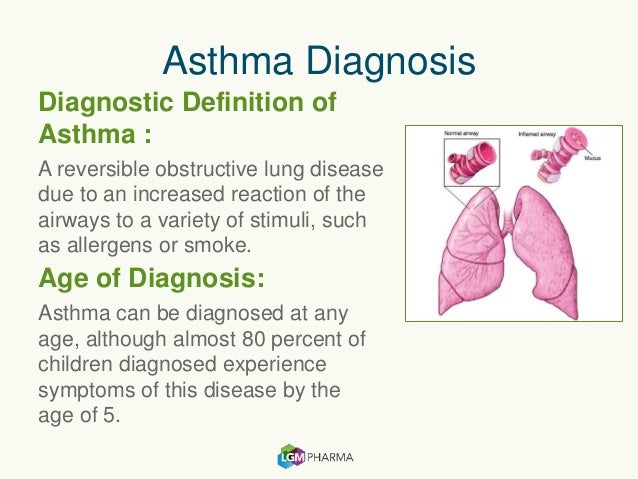
Historically, asthma and COPD chronic obstructive pulmonary disease have been considered separate and unique diseases with distinct characteristics. Classically, asthma has been characterized by reversible airways obstruction and COPD by fixed, less reversible, or irreversible airways obstruction. The definitions of asthma and COPD have undergone major revisions recently and COPD, like asthma, has now been recognized as an inflammatory disease of the airways [ 1, 2 ]. Even though asthma and COPD can be and are often appropriately separated as clinical entities, there are times when they are clinically and physiologically indistinguishable. As subcategories or phenotypes of asthma and COPD are identified, the distinction between these two disorders is less well defined. Some of the phenotypes exhibit very similar clinical, physiologic, and inflammatory profiles. The concept of asthma and COPD viewed as separate disease states has evolved as definitions and categorization of asthma and COPD change, and, as such, we are now encountering more overlap among these two disorders than was previously recognized. So we now pose the question: should asthma and COPD always be recognized and viewed as completely distinct diseases or is there enough similarity to view them equivalently at times?
Mon-Sun: ampm MST. There is a lot of information on the internet stating that asthma is reversible, but what does that mean? For many who have been recently diagnosed with a disease, they research more about it as soon as they get home. Currently there is no cure for asthma, the disease is a chronic disease, meaning it will not go away. Understanding the History.
Is asthma reversible? The good news is Rodjawan Supakul, MD, UnityPoint Health, says there are two simple ways you can reduce asthma symptoms and start breathing better and easier. There are several stages of asthma, ranging from mild to severe. In the mildest form, people may not have any symptoms, while those with severe asthma may be oxygen-dependent. Supakul says the first step is an early diagnosis. Supakul says. Primary asthma symptoms include shortness of breath, coughing and wheezing.
